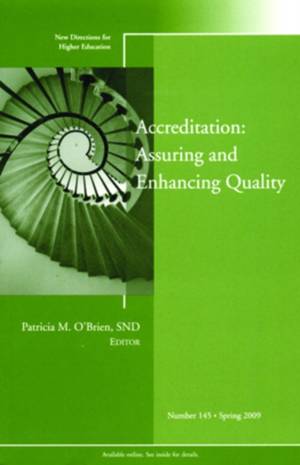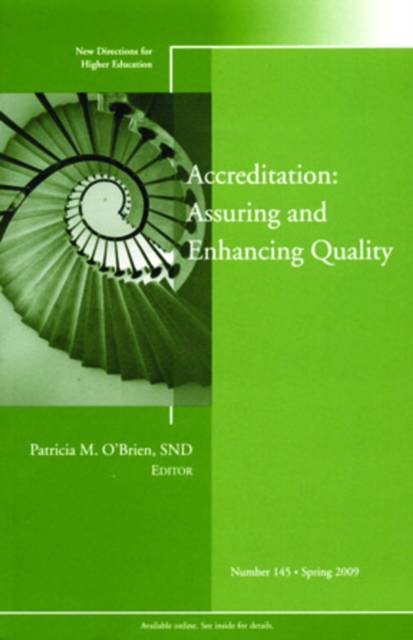
- Retrait gratuit dans votre magasin Club
- 7.000.000 titres dans notre catalogue
- Payer en toute sécurité
- Toujours un magasin près de chez vous
- Retrait gratuit dans votre magasin Club
- 7.000.000 titres dans notre catalogue
- Payer en toute sécurité
- Toujours un magasin près de chez vous
Accreditation: Assuring and Enhancing Quality
New Directions for Higher Education, Number 145
Description
Chapters discuss:
- Accreditation in the United States: How Did We Get to Where We Are?
- Accreditation's Benefits for Individuals and Institutions
- A College President's Defense of Accreditation
- The Impact of the Changing Climate for Accreditation on the Individual College or University: Five Trends and Their Implications
- An Accreditation Dilemma: The Tension Between Program Accountability and Program Improvement in the Programmatic Accreditation
- Accreditation Systems in Japan and the United States: A Comparative Perspective on Governmental Involvement
- Accreditation in the United States
- Musings ont he Future of Accreditation
With the convening of the Commission on the Future of Higher Education (commonly referrred to as the Spellings Commission) in 2005, however, accreditation has come under attack. Critics of accreditation have argued that accreditation no longer serves institutions or the general public well. They have castigated accrediting commissions for emphasizing inuts over outcomes as measures of quality, for being insufficiently transparent about their processes, and for providing inadequate information to students and their families and to members of the general public.
This volume is an invaluable resource for institutions facing the accreditation process. It is the 145th volume of the Jossey-Bass quarterly report series New Directions for Higher Education. Addressed to presidents, vice presidents, deans, and other higher education decision makers on all kinds of campuses, New Directions for Higher Education provides timely information and authoritative advice about major issues and administrative problems confronting every institution.
Spécifications
Parties prenantes
- Editeur:
Contenu
- Nombre de pages :
- 100
- Langue:
- Anglais
- Collection :
- Tome:
- n° 145
Caractéristiques
- EAN:
- 9780470489024
- Date de parution :
- 01-04-09
- Format:
- Livre broché
- Format numérique:
- Trade paperback (VS)
- Dimensions :
- 147 mm x 221 mm
- Poids :
- 158 g






